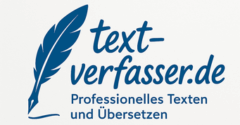High-quality translations from a professional German translator
Economic Translation into German: Bridging Global Communication Gaps
In today’s highly interconnected world, where businesses expand their reach across borders, engage in international trade, and build strategic partnerships with companies from diverse linguistic backgrounds, the importance of high-quality economic translation services is greater than ever. Increasing globalization and constant interaction between companies from different countries and cultures demand seamless and accurate communication to succeed. In this context, economic translation into German plays a crucial role as a bridge to overcome language barriers and facilitate smooth interaction between businesses and their international business partners.
A well-executed economic translation into German not only enables seamless communication but also acts as a catalyst for growth and success in the global market. Through professional and precise translation of business content into the German language, companies can convey their messages effectively and target their audiences in German-speaking regions. This strengthens customer trust, increases customer satisfaction, and enhances the prospects of successful market entry into German-speaking markets.
The significance of precise economic translation into German cannot be underestimated, as it goes beyond mere word conversion from one language to another. It requires a deep understanding of the nuances of each language, its cultural peculiarities, and industry-specific terminology. An experienced translation team with knowledge of the German language and culture, as well as expertise in relevant industries, is indispensable to ensure high-quality and culturally sensitive translation.
A minor mistranslation in a contract, marketing campaign, or financial document can have serious consequences. It could lead to costly misunderstandings, tarnish a company’s image, or even result in legal disputes. Therefore, translators must not only grasp the correct meaning of words but also understand the context, intention, and intended message to deliver accurate and reliable translations.
Types of Economic Translations
The spectrum of economic translation is broad and encompasses various areas ranging from marketing and finance to law and technology. Each domain requires specific expertise and careful adaptation to meet the needs and requirements of target audiences.
- Marketing and Advertising Translation: When translating marketing and advertising content, the goal is to convey the core message and brand identity into the German language while considering the cultural nuances and preferences of the German audience. A successful marketing translation sparks interest and promotes customer engagement across cultural boundaries.
- Financial Translation: The financial sector relies heavily on accurate translations to convey complex data precisely. Translating annual reports, balance sheets, profit and loss statements, prospectuses, and other financial documents requires a deep understanding of financial terminology and concepts, along with accurate translation into German.
- Legal Translation: Companies operating internationally encounter various legal documents, contracts, and agreements that need to be translated. Legal translation demands utmost precision and adherence to legal terminology to ensure all parties understand terms, rights, and obligations in their native language.
- Technical and Scientific Translation: In technical fields such as engineering and medicine, accurate translation of user manuals, product specifications, and scientific research papers is crucial. Here, translators must not only correctly translate technical terms but also ensure that instructions and information are clear and understandable.
In addition to these areas, economic translation also encompasses:
- Economic News: Translating texts covering current economic developments and events, such as stock market reports, corporate mergers, economic indicators, and forecasts.
- Corporate Reports: Translating reports presenting the overall condition and performance of a company over a specific period, including information on sales, profits, investments, and strategic initiatives.
- Economic Analysis: Translating articles or reports providing deeper insights into economic trends, industry developments, and macroeconomic phenomena.
- Business Plans: Translating strategic directions and objectives of a company, including market analysis, business model, financial forecasts, and growth strategies.
- Economic Policy: Translating texts dealing with economic policy topics, such as trade policy, fiscal policy, monetary policy, tax reforms, and regulation.
- Marketing Texts: Translating texts related to marketing and advertising, such as product descriptions, advertising campaigns, market research reports, and customer reviews.
- Academic Economic Texts: Translating texts used in economic research and education, such as scientific articles, studies, economic models, and textbooks.
- Legal Texts in an Economic Context: Translating contracts, trade agreements, court decisions, and other legal documents relevant to business.
Challenges in Economic Translation into German
Economic translation poses specific challenges due to linguistic, cultural, and contextual differences between languages. The German language usage, cultural norms, and business practices may differ from those of other countries. Therefore, it is crucial for translators to not only be linguistically proficient but also have a deep understanding of German culture and the business peculiarities of Germany and other German-speaking countries.
Idiomatic expressions, metaphors, and humor may not translate directly, necessitating careful adaptation to preserve the intended meaning. Cultural sensitivity is of great importance, as an inappropriate translation could impact the success of a marketing campaign or negatively affect a company’s image.
The constant development of industries and terminologies requires translators to stay up-to-date with trends and developments. The German language is constantly evolving, and new terms and concepts emerge. A competent translation team must have resources and tools to track such developments and incorporate them into their work.
The Role of Professional Economic Translators
To meet the requirements of precise and culturally sensitive economic translations, collaboration with professional translators who are experts in both languages and relevant industries is essential. Such professional economic translators not only possess excellent language skills but also have a deep understanding of the target audience and the linguistic nuances of the German-speaking audience. They can convey the intended message accurately while considering linguistic nuances and cultural norms.
Economic translation into German plays a crucial role in bridging global communication gaps and facilitating international trade between countries such as England, the United States and Germany. Through accurate translations, companies can build trust with their global partners, access a broader market, and achieve sustainable growth in today’s dynamic business world. Emphasizing professional economic translators and investing in high-quality translation services will undoubtedly provide significant advantages in the increasingly competitive global market.
